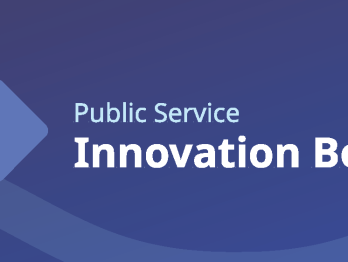Exploring Innovation in Law Enforcement: Opportunities and critical considerations

New technologies, techniques and concepts are rapidly changing policing, border management and law enforcement across the world. For example:
- The Netherlands is taking a systems approach to community policing through multi-agency collaboration. The police, the public prosecutor’s office, victim support, and the probation service are all based at one single location, enabling them to handle complete cases more effectively.
- The city of Chula Vista, California have implemented drones as first responders in some instances, where drones are deployed to emergency calls to provide incident management and live video feeds to police officers. This gives first responders critical information to plan the best tactics and response to an emergency.
- Dubai has put in place New Smart Police Stations, where residents can register criminal reports, request certificates and permits, etc. Dubai Police estimates that the service has the potential to reduce station visitors by 80%, allowing police to focus on the most serious issues
Innovative approaches offer opportunities for promoting public safety and security, community wellbeing and increasing trust in public institutions. However, there are important considerations for public leaders and practitioners seeking to leverage these new methods and technologies. For instance, increasingly pursued data-driven and automated efforts are only as good as the algorithms and data that underpin them. These can include biases, so governments must exercise constant vigilance regarding how their data sourced, maintained and applied. The OECD can help countries take informed steps to navigating the various risks, trade-offs and lessons learned that exist in this space.
Based on the rapidly evolving state of play in this area, the OECD Secretariat is conducting research and analysing case study examples about innovation in law enforcement to better understand the trade-offs and limitations that arise.
Work conducted under the auspices of the OECD Observatory on Public Sector Innovation (OPSI) and High Level Risk Forum (HLRF) already uncovered many relevant law enforcement initiatives that demonstrate how countries and communities are moving forward with cutting edge techniques. For instance:
- OPSI’s 2020 Global Trends series found that governments are using innovative data collection and monitoring techniques and leveraging biometrics and facial recognition technologies in a variety of ways, while seeking to mitigate ethical challenges and risks to the protection of personal rights.
- The HLRF provided capacity building support on cybercrime investigations, including those that disrupt critical infrastructure, and fostered international cooperation on the recovery of digital currencies paid in ransom.
- OPSI’s 2019 Artificial Intelligence primer found that one of the most common public sector AI use cases was in the area of law enforcement and policing. It found that while AI applications in this area had promise, it must also be pursued in an informed, ethical and trustworthy manner, as emphasized in the OECD AI Principles.
However, there is yet to be a unified exploration of innovation initiatives and study of the debates surrounding the use of innovative approaches in this area. There is room to build on the related research conducted and knowledge learned to cover this topic more fully.
With new technologies, data sources and methods at their fingertips, governments in countries and communities around the world will continue to explore and implement new approaches to law enforcement and policing. It is critical for public leaders and practitioners who seek to leverage innovative technologies and methods to take an active and open role and pursue innovation in ways that are informed, contextually and culturally appropriate, considers relevant trade-offs and ethical considerations, builds trust and accounts for the needs and values of their citizens and residents.
Without an informed approach, public institutions run the risk of using, building or buying instruments and solutions that may be well intentioned, but do not account for the full scope of issues and considerations that can enable or hinder their success and acceptance. This could result in a variety of setbacks, ranging from missed opportunities and wasted funds to reputational controversies that undermine trust in government. Determining an optimal course of action is rarely straightforward and innovation always involves a certain level of risk taking. Nonetheless, the likelihood of successful initiatives with positive outcomes for both public institutions and the public at large can be increased through a solid consideration of relevant innovative options and solutions, trade-offs and ethical factors as well as the needs, values and rights of citizens and residents.
To enhance knowledge of innovations that countries are considering adopting, the OECD plans to report on its ongoing research and case study identification, which so far has identified 129 relevant research sources and surfaced 117 examples of innovation in action, (see AirTable below). Are there additional sources and examples the OECD should be aware of? Are there public policy issues the OECD should highlight and clarify the debate around? Please let us know.
Background research sources
Case examples
While the OECD possesses relevant in-house expertise, it plans to assemble groups of interested governments as well as experts in civil society, academia and industry to help inform its research. Would you or your organisation be interested in contributing and providing feedback? Reach out to get involved.
The OECD will keep you posted as its research progresses. In the meantime, if you have any questions or thoughts about this work, please feel free to get in touch at [email protected].








